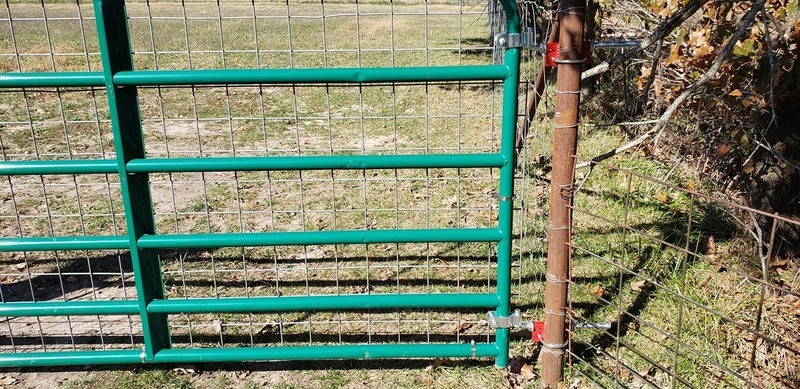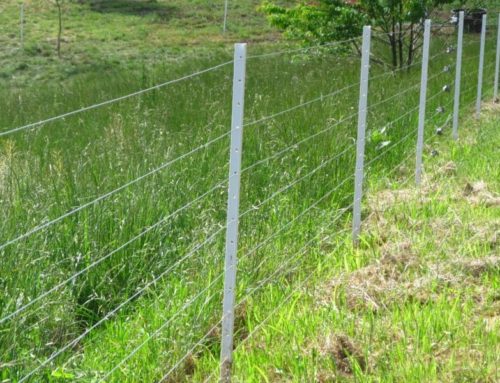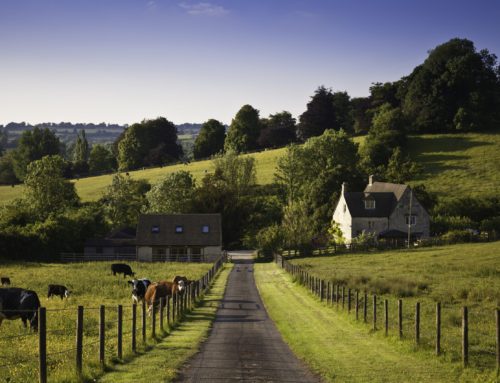To ensure you get the right livestock fencing for your property, here are five questions you should ask yourself.
1. What kind of livestock are you fencing?
Generally, the animal you are deterring or confining will determine the type of fencing you need. For instance, livestock with shaggy, thick coats requires a more powerful fencing option, such as electric fencing. However, the electric charge for such animals needs to be powerful since their thick coats don’t conduct electricity well.
As for sleek-coated animals, you can use a less powerful electric fence, provided the space between wires prevents your animals from pushing through.
2. What is the main function of your fence?
You can build farm fences to contain your livestock, establish grazing areas, or keep wild animals out of your property. To contain cattle or sheep, barbed wire fencing is your best option, while electric fencing works to deter animals and keep your livestock away from valuable crops.
If your cattle consist of bulls, your gate hardware should consist of heavy posts and thick-wire gauge. And, if you have pigs, you’ll need fencing that is set low on the ground to prevent rooting. Rail fences also work well to contain horses, and you can build them using vinyl and composite to increase their durability and longevity.
3. The size of the area that needs fencing
The size of the area you wish to fence determines your supply needs. If you plan to build electric fences, you’ll need to consider the location of power sources and be sure to count the number of posts that will serve as corner posts.
4. What’s the quality of your soil?
Although soil quality isn’t something that most farmers think about, it’s worth considering. Most of the time when there’s a problem with livestock fencing, it’s often linked back to improper grounding. Therefore, take a look at the soil quality in the area you plan to put up your livestock fence.
Since it’s common to find fences leaning because of improperly set posts, determining your soil’s quality is vital. You can consult with an expert to learn more about soil quality and how it affects your livestock fencing.
5. Your maintenance requirements
Different types of livestock fencing posts require varying levels of maintenance. Electric fences require the most maintenance, while vinyl fences are easy to maintain. This is because they’re more susceptible to damage such as arcing, corrosion of the main supply, and leaks that can reduce voltage. In contrast, barbed wire fencing requires frequent and, at times, inconsistent maintenance as broken strands need to be replaced or mended often to maintain the integrity of your fence.
Ultimately, these questions can help you build the ideal livestock fence for your farm to secure your animals and property. For reliable and easy-to-use farm hinges, contact EZ Hinge Farm Gate. With our agriculture EZ Hinge Farm Gate you can hang your farm gates in 10 minutes or less.



